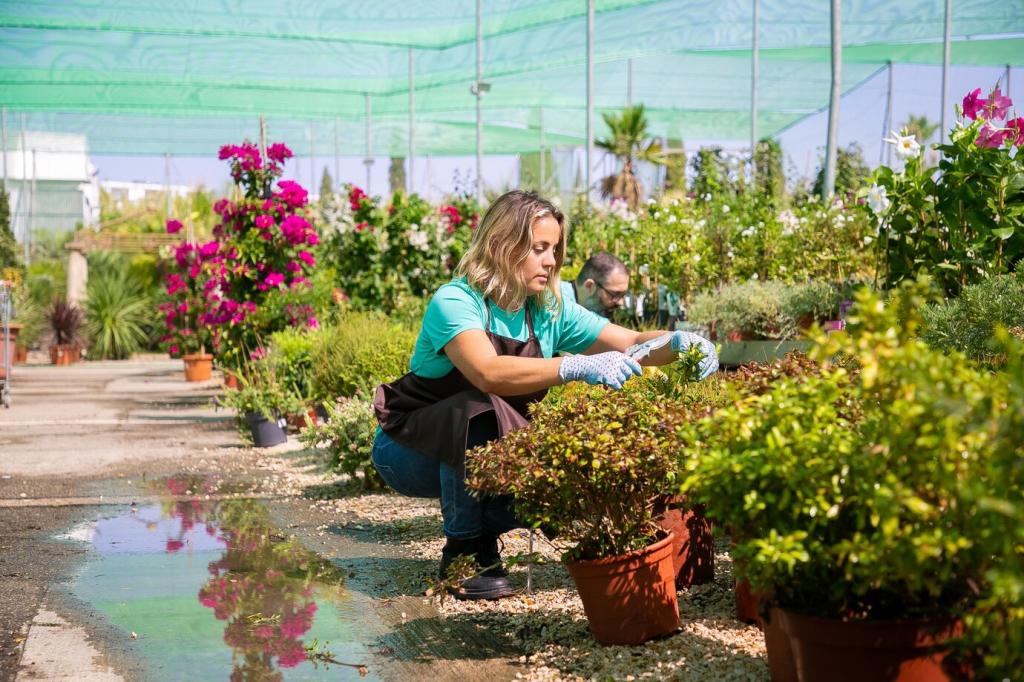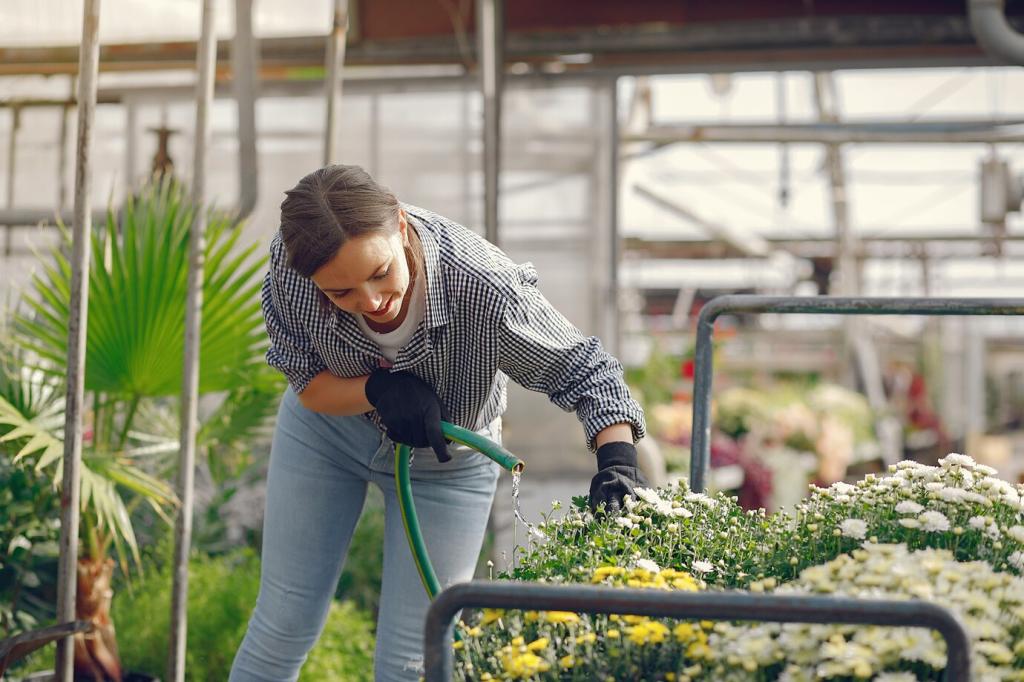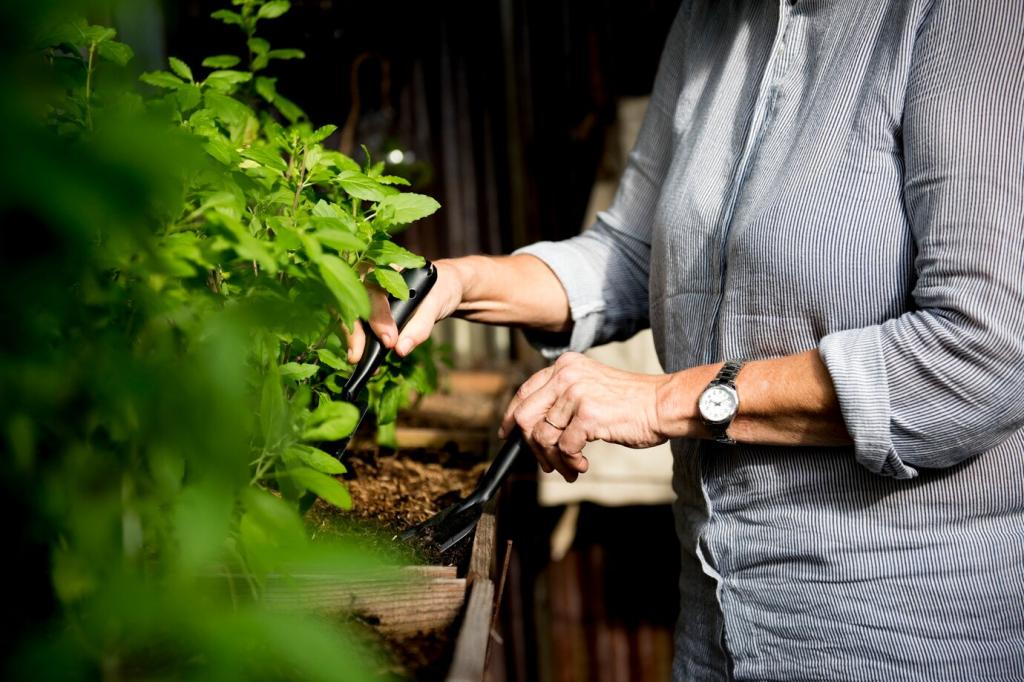How Urban Gardening Enhances Community Well-being
Urban gardening is transforming cities around the world by turning once-neglected plots, rooftops, and alleyways into thriving green spaces. These vibrant gardens not only beautify urban landscapes but also serve as powerful catalysts for social, environmental, and psychological well-being. Through urban gardening initiatives, communities are uniting to foster sustainability, improve access to fresh foods, encourage mental wellness, and nurture stronger social bonds. This page explores the myriad ways in which urban gardening contributes to the well-being of communities, shaping healthier, more connected, and resilient urban environments.


Cleaner Air and Natural Cooling
The presence of plants in urban settings plays a vital role in improving air quality by filtering harmful pollutants and increasing oxygen levels. Trees and foliage not only absorb carbon dioxide but also reduce airborne dust and toxins, making the air safer and healthier to breathe. Additionally, large expanses of concrete and asphalt often create “heat islands” in cities, trapping warmth and raising local temperatures. Urban gardens mitigate these effects by providing shade and facilitating evapotranspiration, which cools the surrounding atmosphere. As a result, neighborhoods with active gardening initiatives experience a more comfortable, healthier living environment.

Promoting Physical Activity
Urban gardening naturally encourages residents to engage in physical activity, whether it’s planting, watering, weeding, or harvesting crops. These gardening tasks provide a gentle yet effective form of exercise that can be enjoyed by people of all ages and abilities. Regular participation in gardening promotes cardiovascular health, improves muscle tone, and increases mobility, especially for older adults or individuals with limited access to recreational parks or gyms. The physical benefits gained from gardening have a cumulative effect, contributing to higher energy levels, reduced risk of chronic illness, and greater longevity among urban populations.

Stress Reduction and Mental Health Benefits
Spending time tending to a garden fosters mindfulness and calmness, providing a natural respite from the bustling city environment. The repetitive actions of planting and caring for crops offer therapeutic benefits, helping to alleviate symptoms of anxiety, depression, and chronic stress. Urban green spaces also serve as tranquil retreats where individuals can reconnect with nature, reflect quietly, or simply unwind after a hectic day. Studies increasingly support the positive impact of urban gardening on mental health, demonstrating lower rates of psychological distress and improved mood among participants.
Strengthening Community Connections
Community gardens are inclusive spaces where residents gather, collaborate, and build lasting relationships. The shared responsibility of cultivating a garden creates opportunities for neighbors to interact regularly, often breaking down social barriers that may exist due to age, language, or cultural differences. Over time, these interactions foster mutual trust and a sense of camaraderie, which can extend beyond the garden to other aspects of community life. This strengthened social network equips communities to support one another more effectively in times of need and encourages the development of grassroots initiatives.
Urban gardening offers a natural setting for intergenerational learning, where children, adults, and seniors come together to share knowledge and skills. Older participants often pass down horticultural wisdom and traditional practices, while younger members contribute fresh perspectives and enthusiasm. This exchange of ideas nurtures empathy and respect between generations, enriching the life of the community as a whole. Additionally, teaching children about gardening fosters environmental stewardship and healthy eating habits from a young age, shaping the next generation of urban citizens.
A well-maintained community garden provides an inclusive space that welcomes everyone, regardless of age, background, or ability. These gardens are designed to be accessible, ensuring that those with mobility challenges can participate and benefit fully. Beyond gardening, these green spaces often host cultural celebrations, educational workshops, and social events, serving as vibrant centers for community activities. Such inclusivity strengthens the overall sense of belonging and ensures that everyone in the neighborhood feels valued and engaged.
Increasing Access to Nutritious Food
Addressing Food Deserts
Many low-income urban neighborhoods face significant barriers to accessing fresh produce, relying instead on convenience stores stocked with processed foods. Urban gardens strategically established in these communities serve as vital sources of fresh fruits and vegetables, bridging nutritional gaps for local families. By growing their own food or sharing harvests, residents benefit from improved diets while reducing dependence on long supply chains. Over time, such initiatives can transform previously neglected spaces into productive hubs, bringing healthy options closer to home.
Cultivating Food Literacy
Through hands-on gardening experiences, urban dwellers develop a clearer understanding of how food is grown and the nutritional value it contains. Participating in all stages of planting, tending, and harvesting crops helps residents make more informed dietary choices and encourages the consumption of a wider variety of fresh produce. Educational programs and workshops often accompany these gardens, teaching participants how to prepare healthy meals with freshly harvested ingredients, further enhancing overall well-being and resilience against diet-related illnesses.
Encouraging Sustainable Eating Habits
Urban gardens promote a culture of sustainability by emphasizing seasonal, local produce and reducing reliance on processed, packaged foods. Community members become more conscious of food waste and learn how to compost organic materials, further contributing to ecological health. By prioritizing plant-based diets and local foods, urban gardening helps reduce the environmental footprint of food consumption, benefitting both personal health and the wider planet. This shift toward sustainable eating fosters a more resilient and self-reliant urban community.
